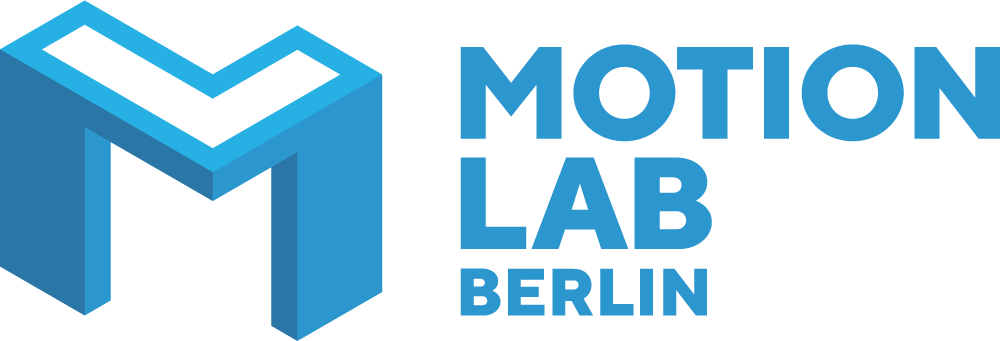re:Mix - Circular ECONOMY IN home Electronics
OPEN FUNK'S VISION FOR CIRCULAR HOME ELECTRONICS
Let's dive into Open Funk's vision for a circular economy in home electronics today. Find out how their story began and get to know more about the team, their development, the sustainable blender re:Mix and the future.
Let’s dive into Open Funk’s vision for a circular economy in home electronics today. Get to know how their story started, more about the team, developments, their sustainable blender re:Mix and the future.
“From electronic waste and huge CO2 emissions to poor working conditions and long supply chains, home appliances contribute to some of the world’s most serious environmental and human rights problems of our times. They break easily, inhibit repairs, and offer spare parts at exorbitant costs. We started Open Funk to provide an alternative.”
Let’s dive into Open Funk‘s vision for a circular economy in home electronics today!
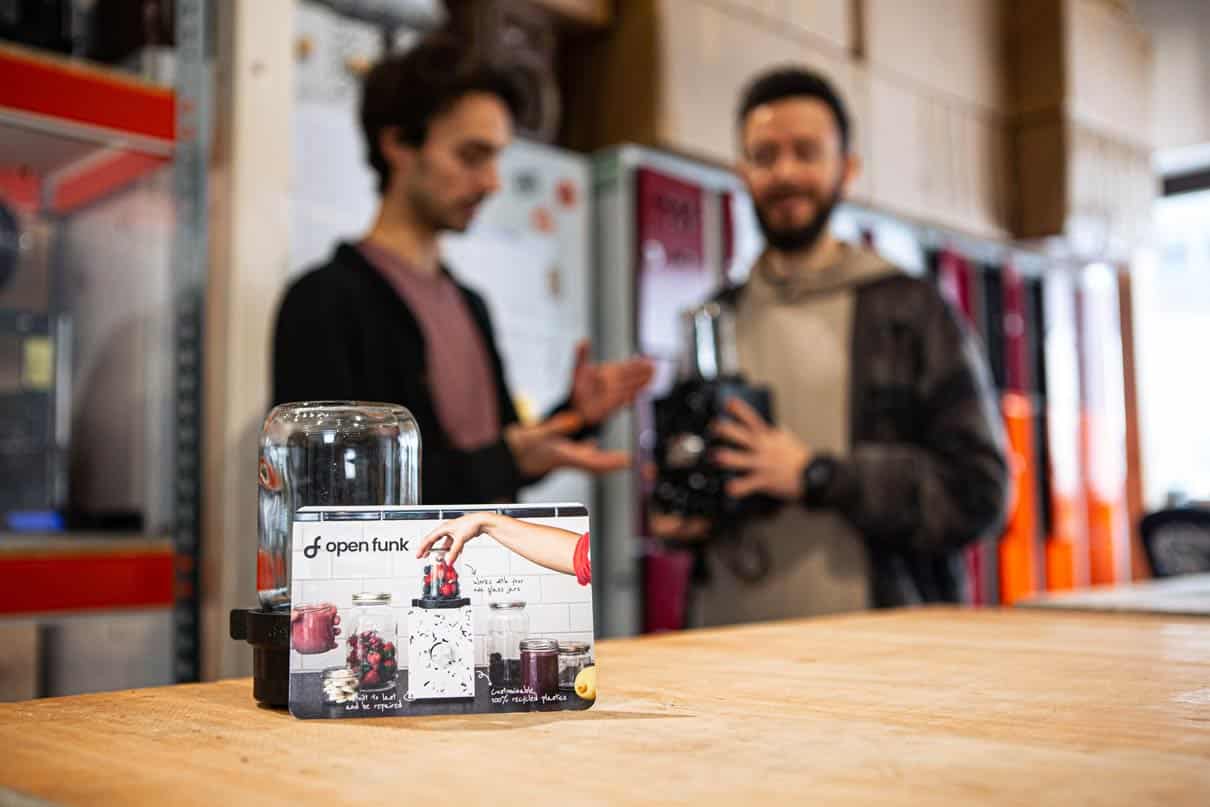
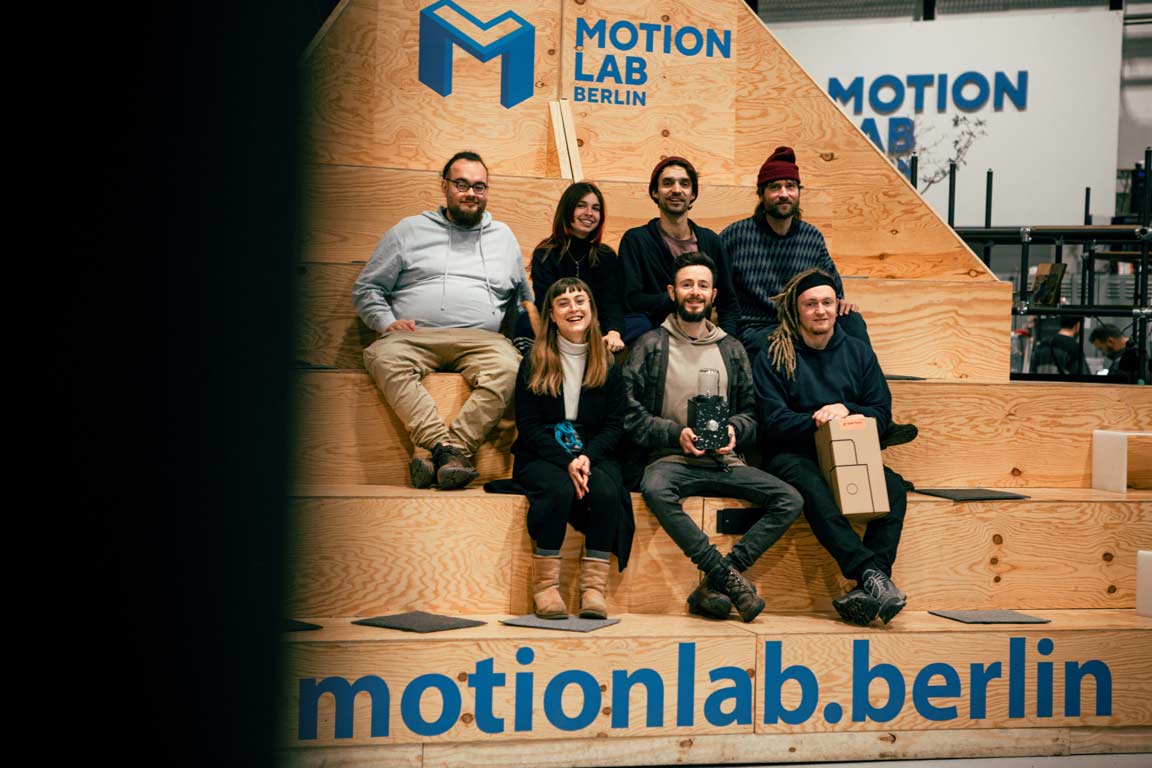
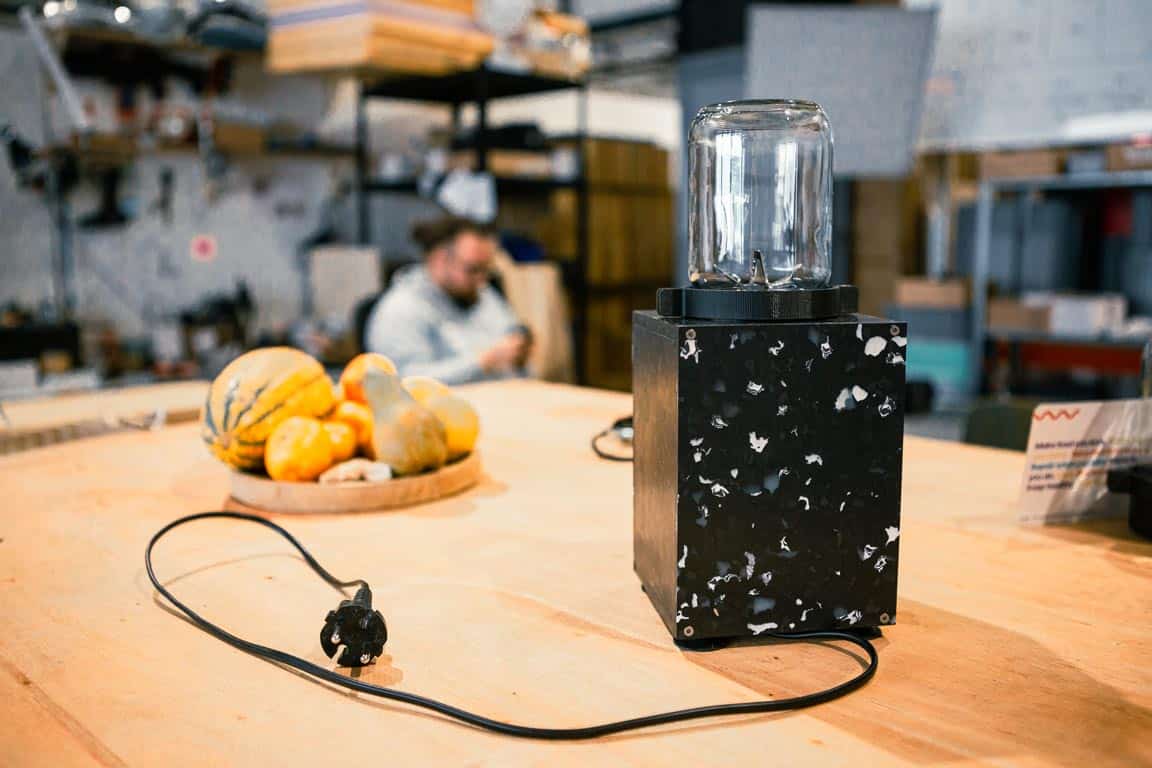
THE BACKGROUND - MEET THE CO-FOUNDERS
Ken Rostand and Paul Anca are the co-founders of Berlin-based startup Open Funk, a company driven to create sustainable, aesthetically pleasing, and practical home appliances.
Ken Rostand and Paul Anca are the co-founders of Berlin-based startup Open Funk, a company driven to create sustainable, aesthetically pleasing, and practical home appliances.
They recently released their first product into the market: re:Mix, a repairable blender that works with standard glass jars. It is crafted at MotionLab.Berlin where, over the past 2.5 years, they have transformed their vision from concept to reality.
Ken, the head of product and engineering, hails from Marseille, France, where he cultivated a passion for nature, visual arts, and urban subcultures during his formative years. With a background in industrial design and design engineering, he has over a decade of experience leading new product developments for renowned companies such as Little Sun, Weber Grills, and more. On the other hand, Paul, who leads the business and marketing side of things, grew up in Romania and studied economics in Vienna. With a background in strategy, business, and UX design, Paul has spent over 10 years working with startups, multinationals, and non-profits.
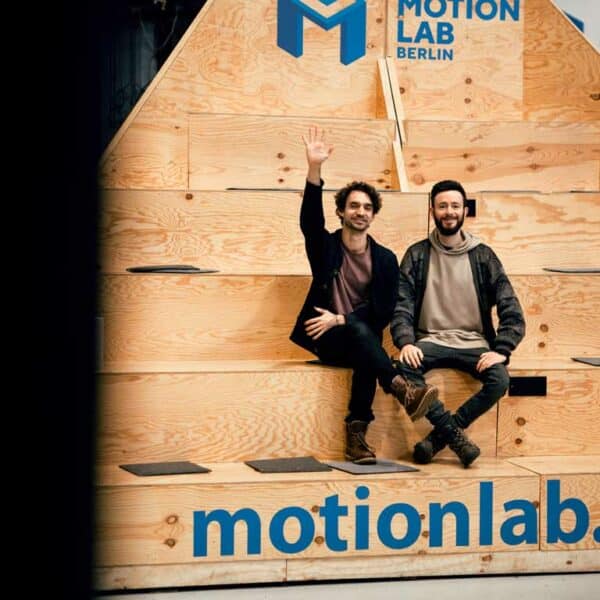
HOW IT STARTED
The idea of a sustainable mixer in the circular economy of home electronics: re:Mix!
The genesis of Open Funk occurred when Ken and Paul met at the “Open Source Circular Economy Days Berlin” in 2018. Bonding over shared concerns about environmental and social issues, they envisioned a company that would address the problems associated with traditional home appliances. Thus, Open Funk was born, with a focus on creating electronics that challenge the norm of being disposable.
The idea for re:Mix, Open Funk’s sustainable mixer, began with looking at a blender Paul bought that broke within 6 months of purchase and proved costly and challenging to repair. This sparked an exploration into the world of e-waste, leading the pair to launch a project aimed at understanding why blenders break and how they are built. Asking for broken mixers from a Facebook group, they received an overwhelming response, which propelled them into action.
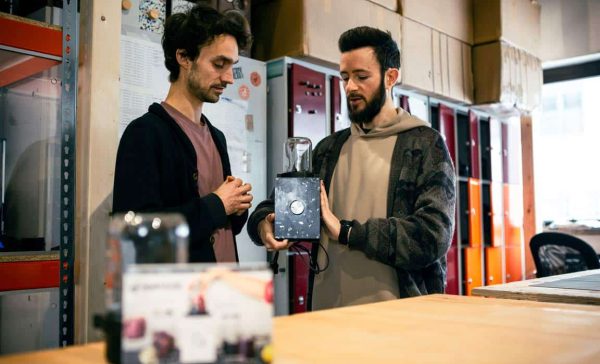
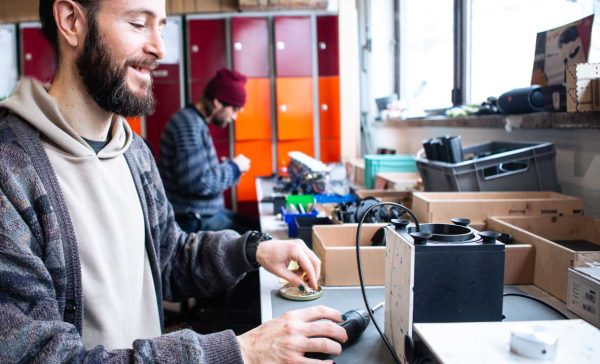
MADE AT MOTIONLAB.BERLIN - OPEN FUNK'S JOURNEY
The Open Funk duo joined the MotionLab.Berlin workspace in July 2021, seeking access to machines and a place to create their prototypes, with the vision in mind to create home electronics for a circular economy. They say MotionLab.Berlin provided not only the tools but also the flexibility to adapt their workspace as the project expanded. From initial drawings to a physical prototype, MotionLab.Berlin was the playground where their ideas took shape.
As Open Funk transitioned from idea to research and development to production, their workspace evolved from a flex desk to a tiny office and eventually to a maker garage. This flexibility allowed them to accommodate their growing 3D-printing farm, additional storage, and a new production line. Recent developments have seen Open Funk go from shipping zero units to 200 units per month, expanding their team from 3 to 10 employees, most of whom were recruited from the MotionLab.Berlin community.
The pair says, “As many people at MotionLab.Berlin say, we came for the machines, but stayed for the community. By community, we mean finding people with the technical know-how to make progress on your project, but also people with really funky vibes.”
RE:MIX - NOT JUST A PRODUCT, IT'S A STATEMENT
re:Mix, is not just a circular economy based product; it’s a statement. Crafted in Berlin from regional, reused, and recycled materials, this blender is designed to last and to be easily repairable. It can whip up smoothies, nut butter, baby food, grind coffee, and more, all while utilising glass jars people already have at home.
Recently, Open Funk embraced the ethos of open source by releasing design files, the bill of materials, and assembly instructions for re:Mix. This move is rooted in the belief that open source empowers individuals to repair their devices, fosters transparency, and promotes repair-friendly design practices within the industry.
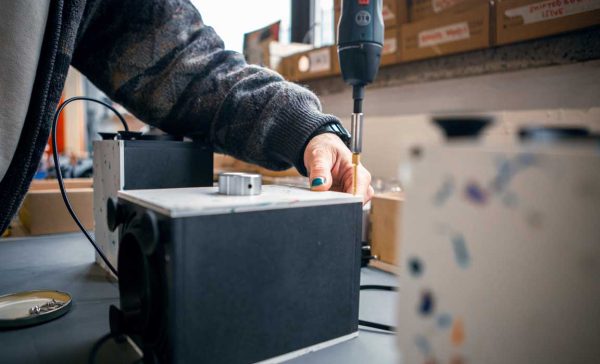
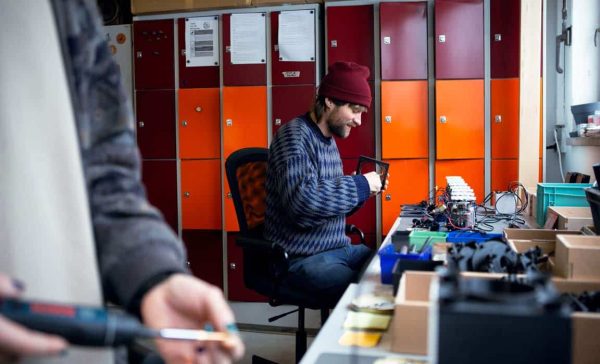
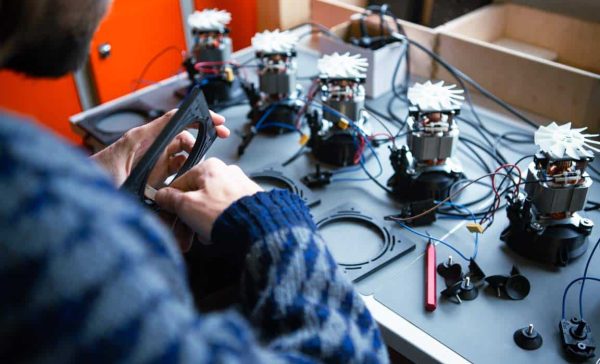
WHAT DOES THE FUTURE FOR OPEN FUNK LOOK LIKE?
Looking ahead, Open Funk envisions growth on multiple fronts. On a product level, they plan to introduce new modules for re:Mix, extending its functionality to other kitchen tasks and exploring innovative approaches to other home appliances that support a circular economy. The community aspect is crucial, as Open Funk aims to engage with the open-source community, encouraging collaboration and transformation. Geographically, they aspire to replicate their supply and manufacturing setup in makerspaces on other continents, creating a global network of sustainable, locally-produced electronics.
